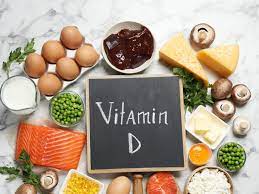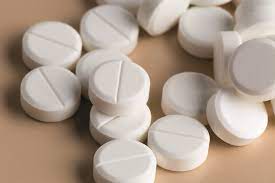In ancient Greece, it was recommended to build muscles in a sunny room, and Olympians were told to train in the sun for best performance.No, they didn’t just want to look tanned in their robes – it turns out the Greeks recognized the vitamin D/muscle link long before the science was fully understood.
While more research has been done on vitamin D‘s contribution to bone health, the sun vitamin’s role in muscle health is just as important.Evidence suggests that vitamin D plays a vital role in many skeletal muscle activities – including early development, mass, function and metabolism.
Vitamin D receptors (VDRs) have been found in skeletal muscle (the muscles on your bones that help you move), suggesting that vitamin D plays a vital role in maintaining muscle form and function.

If you think vitamin D isn’t your own musculoskeletal health priority because you’re not a professional athlete, think again: Skeletal muscle makes up about 35% of total body weight in women and 42% in men, making it a body Important factors in composition, metabolism and bodily function.Adequate vitamin D levels are essential for healthy muscles, no matter how you use them.
According to nutritional musculoskeletal scientist Christian Wright, Ph.D., vitamin D regulates many cellular pathways and functions that maintain muscle health, such as skeletal muscle differentiation (ie, dividing cells decide to become muscle cells!), growth, and even regeneration. “Having adequate levels of vitamin D is critical to optimizing the benefits of vitamin D for muscle,” Wright said.(More about vitamin D levels.)
The study supports his insight that vitamin D improves muscle function (ie corrects the deficiency) in people with vitamin D deficiency.Vitamin D deficiency and insufficiency affect 29% and 41% of U.S. adults, respectively, and a large portion of the U.S. population could benefit from the muscle health benefits supported by healthy levels of vitamin D.
In addition to its direct effects on muscle health, vitamin D also helps maintain calcium homeostasis. This vitamin-mineral partnership is essential for muscle contraction – the tightening, shortening or lengthening of muscles to accomplish physical activity.

That means going to the gym (or this dance-break workout we love) isn’t the only key way to benefit from muscle health support — vitamin D helps you do everything from brewing coffee in the morning to running to catching a train at night Take part in a workout of your choice.
The total amount of skeletal muscle, cardiac muscle, and smooth muscle in your body makes up your muscle mass, and you need adequate vitamin D throughout your life to maintain a healthy percentage.
Higher muscle mass is associated with many health benefits, including slowing muscle loss with age, improving metabolism, and even extending lifespan.In fact, in a 2014 clinical study, older adults with more muscle mass were found to live longer than those with less muscle mass, published in the American Journal of Medicine.
Maintaining healthy muscle mass is not as easy as adding some vitamin D to your diet (rarely provide enough of the essential fat-soluble vitamin to affect your vitamin D status and health in a meaningful way).While vitamin D supplementation is a smart way to achieve and maintain lifelong vitamin D adequacy, your muscle mass will also benefit from an overall nutrient-dense dietary pattern (with a particular focus on high-quality and adequate protein) and regular physical activity.
In addition, many aspects of each person’s unique body composition (% of fat, bone, and muscle) affect the amount of vitamin D required.
Ashley Jordan Ferira, Ph.D., mbg’s Nutrition Scientist and Vice President of Scientific Affairs, RDN previously shared: “Obesity or body fat mass is a key aspect of body composition (such as lean mass and bone density). D status was negatively correlated (ie, higher obesity, lower vitamin D levels).
The reasons for this are varied, “involving perturbations in storage, dilution and complex feedback loops,” Ferra explained.She went on to say, “A major factor is that adipose tissue tends to store fat-soluble compounds, such as vitamin D, so that this essential nutrient is less circulated and activated to support the cells, tissues and organs of our body.”

Additionally, vitamin D appears to have little additional benefit on muscle mass once an adequate state is reached, according to Wright.”Overall, if circulating levels of 25-hydroxyvitamin D were at or above recommended values, vitamin D did not help increase muscle mass,” Wright said.But as Ferira jokes, “That would be a good question, since more than 93 percent of Americans don’t even get 400 IU of vitamin D3 a day.”
What does this mean to us?Well, there is evidence that for those who are deficient or deficient in essential vitamins (again, 29% and 41% of U.S. adults, respectively), vitamin D supplementation can greatly improve muscle mass, so a significant portion of the U.S. population can benefit from vitamin D supplementation. D benefit from some vitamin D to supplement their daily nutrition.
Of course, barely exceeding the threshold for vitamin D insufficiency (30 ng/ml) is not a goal to achieve, but a limit to avoid.(More about vitamin D levels for lifelong health.)
Wait, wait – what exactly is skeletal muscle metabolism?Well, it’s a highly coordinated process that involves communication between immune cells and muscle cells.
Skeletal muscle metabolism is largely dependent on the oxidative capacity of mitochondria, and according to Wright, vitamin D has been shown to influence factors of energy metabolism, such as mitochondrial density and function.
Increasing the size and number of mitochondria, the powerhouses of the cell (thanks to high school biology class), helps the mitochondria convert energy (that is, the food we eat throughout the day) into ATP, the main carrier of energy in the cell All responsive and hard work.This process, called mitochondrial biogenesis, makes your muscles work harder for longer.
”Increasing vitamin D concentrations increases mitochondrial biosynthesis, oxygen consumption, and phosphate uptake, while reducing oxidative stress,” explains Wright. In other words, vitamin D contributes to the metabolic activity of skeletal muscle and supports muscle overall healthy cells, making them powerful teammates for us and our daily exercise and overall health.
Vitamin D plays a vital nutritional role in our muscle health, not only when we exercise, but also in daily physical activity and function. The prevalence of vitamin D insufficiency in the United States has made the vitamin D and muscle link an important topic. Findings, while research is ongoing, it is clear that adequate vitamin D levels contribute to musculoskeletal health and function.
Since it is nearly impossible to restore vitamin D levels with food and sunlight alone, vitamin D supplementation is also an important consideration when trying to achieve optimal muscle health. In addition to delivering effective levels of Vitamin D3 (5,000 IU) from sustainable organic algae, mindbodygreen’s Vitamin D3 Potency+ is optimized with built-in absorption technology to support your muscle, bone, immune and general health.
Whether you’re training for the Olympics, trying to master yoga handstands, or just looking to support your daily activities, consider (reviewed and recommended by experts) vitamin D supplements – your muscles will thank you!
Post time: May-09-2022




